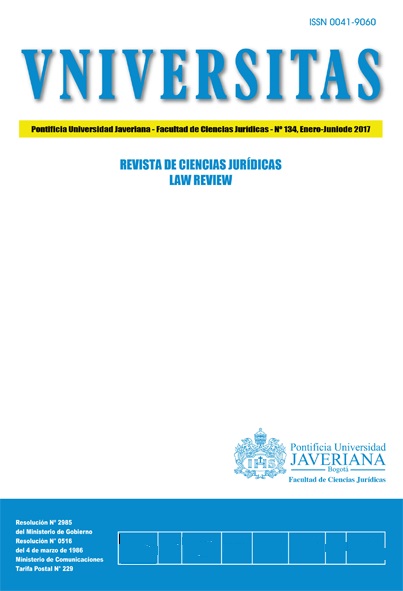Abstract
The article identifies the main gaps and conflicts of the climate legislation of Russia, examines the ways to solve them and trends in the development of judicial practice to protect the climate rights of citizens. For the first time, the authors developed the category “conditions for the implementation of climate policy”, which represents legal instruments and procedures that are not directly climate-oriented, but which can be used to solve the climate problem, facilitating the implementation of the climate rights of citizens and their associations. The structure of the draft law “On Climate Protection in the Russian Federation” is substantiated, its main sections are outlined, the impossibility of including in such a law norms on climate torts is proven, the relationship of the norms of civil, administrative, financial, environmental law, together regulating climate problems, is revealed. The conclusion is substantiated that within the framework of the Russian legal system, a full-scale climate law is more promising than the currently existing framework law, since such an approach allows not only to respond to existing problems and threats, but also to implement the predictive function of law, to predict climate hazards in the future and to lay down a mechanism for their solution today.
phrases of great people, LiveLib, https://www.livelib.ru/book/378124/readpart-sekrety-uspeha-v-tsitatah-500-fraz-velikih-lyudej-avraam-smit/~4 (accessed 25.08.2024).
Aleksey V. Ryndin & Vyacheslav M. Gorshkov, The concept of the subtropics and sub-tropical climate, Subtropical and ornamental gardening 58, 9-15 (2016).
Alexander M. Solntsev, Olga S. Muzaleva & Anna S. Shvarova, On the creation of spe-cialized environmental courts to ensure effective protection of environmental rights of citizens, Bulletin of the Volgograd Academy of the Ministry of Internal Affairs of Rus-sia 1, 28-36 (2013).
Alexandra B. Klass, Property Rights on the New Frontier: Climate Change, Natural Resource Development, and Renewable Energy, Ecology Law Quarterly 38, 97-103 (2011).
Christopher Brown, A Litigious Proposal: A Citizen’s Duty to Challenge Climate Change, Lessons from Recent Federal Standing Analysis, and Possible State-Level Rem-edies Private Citizens Can Pursue, Journal of Environmental Law and Litigation 25, 391-395 (2010).
Christopher Serkin, Climate Zoning, Notre Dame Law Review 99, 1093-1161 (2024).
Dinara Gershinkova, Climate lawsuits: foreign experience and prospects in Russia, Jour-nal of Foreign Legislation and Comparative Law 17-3, 116-131 (2021).
Драгољуб Тодић, Где Су Границе Права Климатских Промена? Зборник радова Правног факултета у Нишу, 83-LVIII, 41-60 (2019).
Ekaterina V. Gritskevich, Organizational and legal mechanism of climate protection: concept, problems and prospects, Part II: Bulletin of the Yanka Kupala State University of Grodno. Series 4 “Jurisprudence” 8-4, 42-51 (2018).
Felix Mormann, Climate Choice Architecture, Boston College Law Review 64-1, 1-53 (2023).
Gerd Winter, Climate is not a commodity: interim results of the emissions trading system, Environmental Law 2, 27-33 (2010).
Green turn (Ed. I.I. Zasursky, Moscow: Climatescience.ru, 2021).
Igor G. Dudko, Constitutional models and judicial protection of human rights in the field of ecology in the context of global climate change (foreign experience), Lex Russica 76 (12), 41-51 (2023).
Ivan S. Korolev, “Global warming” and the energy transition (foreign economic aspect). Analysis and forecast, Journal of IMEMO RAS 2, 13-22 (2022).
Jacqueline Peel & Hari M. Osofsky, Climate Change Litigation, Annual Review of Law and Social Science 16, 21-38 (2020).
Jennifer Huang, Exploring Climate Framework Laws and the Future of Climate Action, Pace Environmental Law Review 38, 285-326 (2021).
Lauren Nishimura, Adaptation and Anticipatory Action: Integrating Human Rights Du-ties into the Climate Change Regime, Climate Law 12, 1-29 (2022).
Mark Nevitt, Climate Change and the Specter of Statelessness, Georgetown Environ-mental Law Review 35: 331-357 (2023).
Municipalities of Puerto Rico v. Exxon Mobil Corp., http://climatecasechart.com/case/municipalities-of-puerto-rico-v-exxon-mobil-corp/ (ac-cessed 25.08.2024).
Natalia G. Zhavoronkova & Vyacheslav B. Agafonov, The Role of the National Climate Law in Ensuring the “Energy Transition”, Actual Problems of Russian Law 17-2, 151-162 (2022).
Olga L. Dubovik, Climate change and its impact on the dynamics and functioning of ecosystems (analytical review from the standpoint of jurisprudence and the tasks of the science of environmental law), Law and Politics 4, 928-934 (2009).
Sameh Shoukry, Meet the Climate Loss and Damage Compensation Fund, https://www.project-syndicate.org/commentary/how-to-implement-the-cop27-loss-and-damage-fund-by-sameh-shoukry-2023-05/russian (accessed 25.08.2024).
Theodore J. Boutrous & Dominic Lanza, Global Warming Tort Litigation: The Real “Public Nuisance”, Ecology Law Currents 35, 84-86 (2008).
The Two Hundred for Homeownership v. California Air Resources Board, http://climatecasechart.com/case/the-two-hundred-for-homeownership-v-california-air-resources-board/ (accessed 25.08.2024).
Weldon M.N. Climate Change and Business law in the United States: Using Procure-ment, Pay, and Policy Changes to Influence Corporate Behavior, European Company Law 11-2, 141-143 (2014).
What should Russia do with the climate crisis / Greenpeace https://www.legalinsurance.ru/media/kunena/attachments/457/-------Greenpeace.pdf (ac-cessed 25.08.2024).
William W. Buzbee, Federalism Hedging, Entrenchment, and the Climate Challenge, Georgetown Law Faculty Publications and Other Works, 2350, https://scholarship.law.georgetown.edu/facpub/2350 (accessed 25.08.2024).
Varvara Abaturova & Ekaterina Bliznetskaya, Court decisions on the implementation of the Paris Climate Agreement, https://russiancouncil.ru/analytics-and-comments/columns/ecology/sudebnye-resheniya-po-voprosam-osushchestvleniya-parizhskogo-soglasheniya-po-klimatu/ (accessed 25.08.2024)

This work is licensed under a Creative Commons Attribution 4.0 International License.
Copyright (c) 2025 Aleksey Anisimov, Yulia Isakova, Olga Volkonskaya


